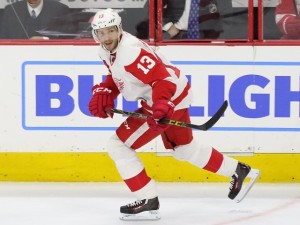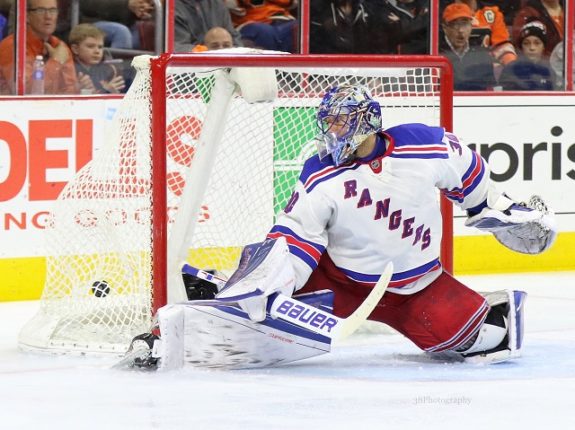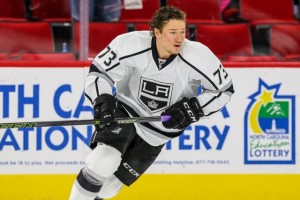In each playoff round, there are a few performances that end up defining each series. On the winning side, a star usually shines as they are expected or an unsung hero emerges to lead his team to victory.
On the losing side, there are almost always some stars that fail to live up to expectations. In the playoffs, if your best players do not play like your best players, you will not go far in the playoffs. For a few of the losing teams, it was their superstars who failed to show up, leading to their exit.
Here’s a look at who disappointed in the first round among the losers:
Pavel Datsyuk, Red Wings
Shortly before the Red Wings began their first round series with the Tampa Bay Lightning, a report came out that Pavel Datsyuk was planning on returning to Russia after the 2015-16 season. Datsyuk hasn’t said outright that he’s leaving, but it’s looking very likely.
From listening to Henrik Zetterberg, sure get the impression Pavel Datsyuk has decided to return to Russia for next season. Not official.
— Helene St. James (@HeleneStJames) April 25, 2016
Maybe it was the weight of the pressure of the report getting out while the playoffs hadn’t even started yet, but Datsyuk was not himself in the playoffs.

At 37-years old, Datsyuk is past his prime, but was still plenty effective this season, posting 49 points in 66 games. That put him at a .74 point-per-game pace, his worst since his rookie year in 2001-02.
The decline continued in the playoffs where Datsyuk failed to produce a point while the Red Wings managed just eight goals in five games en route to being knocked out by the Lightning. Contributing to the loss was the ineffectiveness of the Detroit power play, going 1 for 25. Datsyuk was a big part of those struggles.
If this truly is the end, this was not the series Datsyuk wanted to go out on.
Jonathan Quick, LA Kings
Billed as a money goaltender in the playoffs, Quick and the Kings suffered a disappointing first round defeat against the Sharks. Many predicted the Sharks to falter in the playoffs and the Kings to raise their game like usual, but it was the opposite this season.
Jonathan Quick finished with a .886 SV% in the series and gave up a goal on the first shot he faced in 3 of the 5 games #elite
— miller low life (@itwasthreezero) April 23, 2016
Quick had one strong game in the five-game series in the Kings’ only win in Game 3, saving 29 of 30 Sharks shots. In the remaining games, Quick posted a mediocre .863 save percentage in the four losses. He was bested by his own former backup, Martin Jones, who posted a .912 save percentage en route to his first playoff series win as a starter.
Quick didn’t get a lot of help from his forwards, who scored just 2.20 goals per game, but the Kings needed more from him to win the series.
The Flyers’ Top Line
For a majority of the season, the Flyers were carried by their top line, which featured Claude Giroux, and some combination of Jakub Voracek, Brayden Schenn and Wayne Simmonds. Those four also make up 80 percent of the Flyers’ top power-play unit, in addition to Shayne Gostisbehere.

But towards the end of March, production from this group nearly dried up. The once deadly first power-play unit looked stale, and the struggles carried on into the playoffs. The Capitals gifted the Flyers plenty of power-play opportunities, including a 5-on-3 in Game 6 for a full two minutes. But, they were unable to capitalize. The Flyers’ power play went 1 for 24 in the series, second worst to Detroit’s 1 for 25.
Brayden Schenn played well because of his jump and physical play, but the other three struggled mightily. All four combined for one goal and five assists during a combined 24 games played, good for a points per game of .25. In the regular season, they combined for 241 points in 312 games for a points per game of .77.
If the first power play were clicking, the Flyers very would could have taken the series to seven games, or even won it.
Henrik Lundqvist, New York Rangers
After four stellar playoff runs during the last four years in which Lundqvist won eight playoff series, Lundqvist struggled in the playoffs for the first time in recent memory. In the five-game series, he was pulled three times. The first was due to an eye injury as a result of an errant stick, but the other two were performance related.

In Games 4 and 5, Lundqvist allowed a combined 10 goals in 66 minutes of work en route to being pulled in favor of Antti Raanta on both occasions. The losses were far from just Lundqvist’s fault, however. The skaters in front of him left him out to dry, but Lundqvist was just not his usual self. He’s bailed the Rangers out on countless occasions, but could not do it these playoffs.
He ended the playoffs with an unimpressive 1-3 record, 4.39 GAA, and .867 save percentage. His even-strength save percentage dropped from .934 in the regular season to just .908 in the playoffs.
Tyler Toffoli, LA Kings

After he posted a career year with 31 goals, 27 assists and 58 points (good for first, sixth, and third on the team in the regular season), it appeared that Tyler Toffoli was taking the next step in his career. However, it ended up being a playoff run to forget for Toffoli.
Toffoli managed just one assist in five games as the Kings were knocked out of the playoffs by the Sharks. Toffoli failed to make a big impact in the series, looking disinterested at times. What made the performance even more surprising was that Toffoli played very well against the Sharks during the regular season, posting three goals and two assists in five games.
The Kings will likely be back in the playoffs next year, and will be looking for an elevated performance from Toffoli.